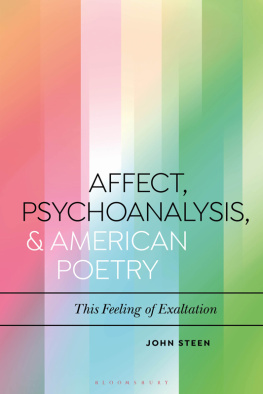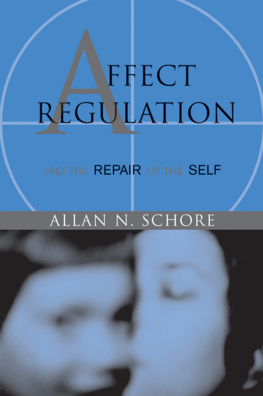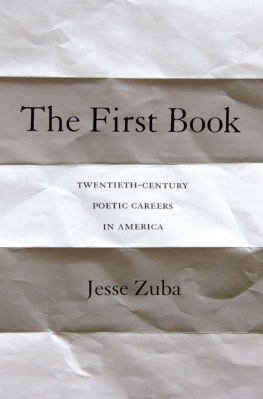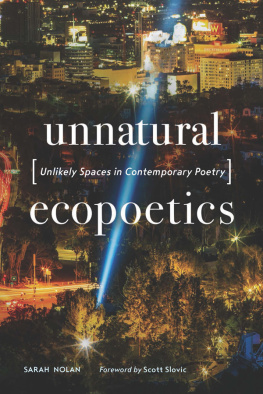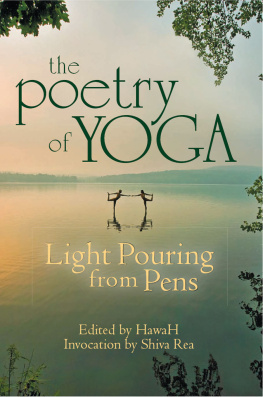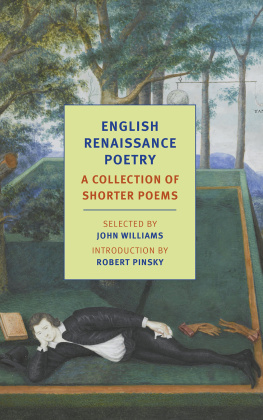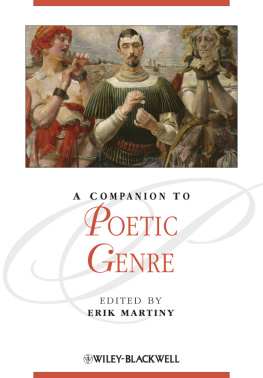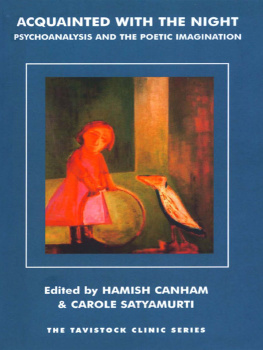Affect, Psychoanalysis,
and American Poetry
Bloomsbury Studies in Critical Poetics
Series Editor: Daniel Katz, University of Warwick, UK
Political, social, erotic, and aestheticpoetry has been a challenge to many of the dominant discourses of our age across the globe. Bloomsbury Studies in Critical Poetics publishes books on modern and contemporary poetry and poetics that explore the intersection of poetry with philosophy, linguistics, psychoanalysis, political and economic theory, protest and liberation movements, as well as other art forms, including prose. With a primary focus on texts written in English but including work from other languages, the series brings together leading and rising scholars from a diverse range of fields for whom poetry has become a vital element of their research.
Editorial Board:
Hlne Aji, University of Paris Ouest-Nanterre, France
Vincent Broqua, University of Paris 8Vincennes/Saint Denis, France
Olivier Brossard, University of Paris Est Marne La Valle, France
Daniel Kane, University of Sussex, UK
Miriam Nichols, University of the Fraser Valley, Canada
Peter Middleton, University of Southampton, UK
Cristanne Miller, SUNY Buffalo, USA
Aldon Nielsen, Pennsylvania State University, USA
Stephen Ross, University of Warwick, UK; Editor, Wave Composition
Richard Sieburth, New York University, USA
Daniel Tiffany, University of Southern California, USA
Forthcoming Titles:
City Poems and American Urban Crisis, Nate Mickelson
A Black Arts Poetry Machine, David Grundy
Lyric Pedagogy and Marxist-Feminism, Samuel Solomon
Queer Troublemakers, Prudence Chamberlain
Affect, Psychoanalysis,
and American Poetry:
This Feeling of Exaltation
John Steen

For Stephen, in lieu of Rock Drill
My friends, family, and colleagues made this book possible by providing the kind of holding environment with which it is concerned. Over the course of several years, I learned as much about the affects from these people as from the texts that linked us. The project began in the Department of Comparative Literature at the Laney Graduate School of Emory University under the direction of Elissa Marder, Walter Kalaidjian, and Claire Nouvet. These advisers provided unrivalled support for my fledgling efforts at scholarship, and the shape of the book owes everything to their early guidance. Among the many faculty members at Emory whose patient mentoring made this project possible, Im especially grateful to Deborah White, Geoffrey Bennington, Cathy Caruth, Andrew Mitchell, and Jill Robbins. Fellow graduate students at Emory introduced me to the very idea of intellectual community, and their conversations, feedback, and gentle nudging helped me over innumerable hurdles. Special thanks to Adam Rosenthal, Dave Ritchie, Aaron Goldsman, Armando Mastrogiovanni, Matt Roberts, Ronald Mendoza de Jesus, Ania Kowalik, Harold Braswell, Margaret Boyle, Mark Stoholski, Taylor Schey, Patrick Blanchfield, Christina Leon, Brent Dawson, Naomi Beeman, Andrew Ryder, John Selvidge, Maya Kesrouany, Mishka Sinha, Scott Branson, Jacob Hovind, Joshua Backer, and Verena Peter. Mentors and teachers at the Emory University Psychoanalytic Institute nurtured my interest in the field when I was a student there, and Im especially grateful to Carol Levy, Steven Levy, Patrick Haggard, and Bobby Paul.
My colleagues at Oklahoma State University and East Carolina University supported me in precarious times. Without the encouragement of these steadfast teachers and thinkers, the project would have stalled long ago. Thank you, Elizabeth Grubgeld, Ron Brooks, Richard Frohock, Katherine Hallemeier, Seth Wood, Timothy Bradford, Amanda Klein, Margaret Bauer, Tom Douglass, Jeffrey Johnson, Alex Albright, Erin Frost, Liz Hoiem, Marianne Montgomery, and Brian Glover.
During the year I spent with Scholars for North Carolinas Future, I learned from the examples of academics who saw their labor as inseparable from political action, and I owe a debt of gratitude to Bruce Orenstein, Nancy Maclean, Lisa Levenstein, Stephen Boyd, Michael Pisapia, and many, many others for this vision of alternative academia. Sarah Glick and Sam Wohns at Faculty Forward deserve a special word of thanks for their encouragement during this time.
This book was completed during my first year of teaching at The Galloway School, and I found support and encouragement from school leadership and my colleagues at every step. Id like to thank Suzanna Jemsby, Gareth Griffith, Roberta Osorio, Peter Emmons, Cheryl Despathy, Ann Fountain, Jeanne Martinez, Rosie Seagraves, Jesus Martinez-Saldana, Scotti Belfi, Sam Biglari, Lauren Holt, Lisa Lindgren, Robin Rakusin, Anne Broderick, and Chamara Kwakye.
The project was greatly improved thanks to those who read and commented on parts of the manuscript. In addition to Stephen Ross, Jason Maxwell, Timothy Bradford, Dave Ritchie, Adam Rosenthal, Zakir Paul, Scott Branson, Seth Wood, Lisa Knisely, Elizabeth Grubgeld, Nick Sturm, and Richard Flynn, Im grateful to audiences at the Modernist Studies Association, MLA, American Literature Association Poetry Symposium, and Affect Theory: WTF conference for the gift of their questions and comments on the work in progress. To Daniel Katz, series editor of Bloomsbury Studies in Critical Poetics, David Avital and Clara Herberg at Bloomsbury, and the two anonymous readers of the manuscript, thank you for believing in this project and shepherding it to publication over the course of several years.
The love and support of friends made writing about negative affects more bearable. From Winston-Salem, NC, to Atlanta, GA, and everywhere in between, I have been more than fortunate to have this company alongside me: Roy Blumenfeld, Lauren Links, Adam Rosenthal, Dinah Hannaford, Stephen Ross, Jane Hudson, Lisa Knisely, Aaron Goldsman, Dean Hunt, Amanda Morelli, Maria Corrigan, Kamal Menghrajani, Liz Blackford, Rachel Greenspan, Claire Hefner, Sarah Pickle, Andres Palmiter, Erica Palmiter, Jim Vickers, Ciara Cordasco, Kellie Vinal, Phillip Meeker, Jordan Chambers, Dale Donchey, Walt Hunter, Lindsay Turner, Gregg Murray, Erin Murray, Kate Juergens, Fernando Escalona, Jimmy Lo, Marissa Grossman, Krystle Brewer, Kara Moskowitz, Sarah Huener, Jamie Martina, Lola Rodden, and Jenn Poole.
My family has watched this project and waited for its completion with a patience and kindness that surpasses understanding. My grandmothers, Dorothy and Lucy, asked about the book each time I visited; I write in memory of their husbands, my grandfathers John and Bart. Mom, Dad, Bart, Autumn, Matthew, Anna, Sarah, and Andrs, lets go to La Carreta to celebrate.
Stephen Ross trekked over miles of invisible terrain, performing, in broad daylight, operations of great delicacy in support of this work.
Kathryn reminded me, in Adrienne Richs words, that whatever happens, this is.
What does a poem contain? This unanswerable question has long troubled readers of poetry, who recognize in a poems grid of lines a proprietary claim to representing the likeness of a person, the subjective truths of memory, and the varieties of affective experience. Discussions of poetry in the last century have been dedicated, explicitly or implicitly, to thinking about poems as either closed or open, as objects whose self-referentiality accounts for their unique status, or as objects whose openness to the reader precludes any fixed account of their formal parameters. What would it mean to consider poems as objects that are, paradoxically, both closed and open and, simultaneously, neither closed nor open? A model of poetic relationality would allow readers to imagine that an individual poems relationship to its own closure or failure to close conditions its interaction withits failure to be either closed or fully open tothe world that lies, at least supposedly, outside. Rather than fix poems as either closed or open, this study considers how a poem relates to the problem of what it contains or fails to contain, and how this relationship brings the poem into contact with the world.
Next page
